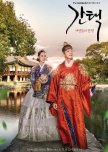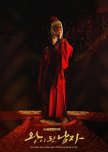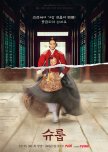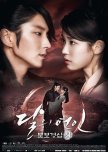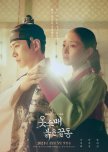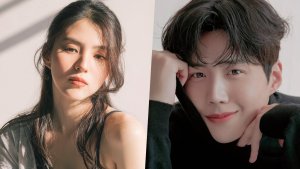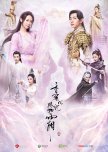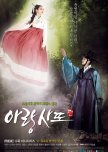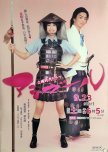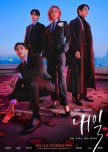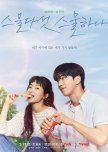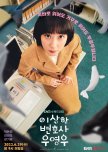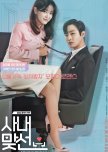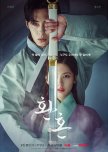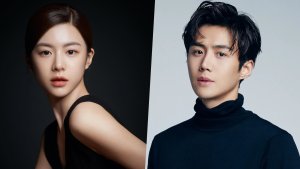 Go Youn Jung in Talks to Pair Up with Kim Seon Ho and Reunite with the Hong Sisters!
Go Youn Jung in Talks to Pair Up with Kim Seon Ho and Reunite with the Hong Sisters! A fictional historical drama set when Lee Tae, the eldest son of King Sunjong, ascends to the throne of Joseon. After his father deposed the previous king with Park Gye Won’s help, Lee Tae seeks to rule as an absolute monarch. However, Park Gye Won, more powerful than the king, opposes him. Meanwhile, Yoo Jung, a noblewoman whom Lee Tae considers his wife, becomes entangled in the royal court’s power struggle. (Source: MyDramaList) Edit Translation
- English
- Arabic
- Русский
- Français
- Native Title: 붉은 단심
- Also Known As: Red Heart , Bulgeundansim , Red Single Heart
- Screenwriter: Park Pil Joo
- Director: Yoo Young Eun
- Genres: Historical, Drama, Political
Cast & Credits
- Kang Han Na Main Role
- Jang Hyuk Main Role
- Park Ji Yeon Support Role
- Heo Sung Tae Support Role
- Choi Ri Support Role
Reviews

Brilliant potential, if only … but still worth watching overall. Great minister characters.
To give a general sense of this drama, I would describe it as something that falls between Six Flying Dragons and Empress Ki in terms of tone, themes, characters, and storylines. It had a strong start, and I absolutely loved the politics in the early episodes, but as it went on, there were aspects that began to lessen my enjoyment considerably. I do think there were elements that were great throughout, but this drama didn’t fully live up to the potential it had.Perhaps the best thing about this drama is the way it re-explores the themes that dominate sageuk politics. There are a couple normative principles that generally underlie the hero-villain dichotomy of the vast majority of sageuks. 1) Strengthening royal authority is good. 2) Revenge is a justifiable motive. (The former is more deeply enshrined than the latter.) This drama throws both into question. So while the initial set-up might seem like a standard plot in which a weak monarch fights back against a minister whose power eclipses that of the throne, this is not necessarily the stereotypical storyline you’ve seen many times before. Despite some major shortcomings in the plot of the second half (more on that later), I’d still say it’s one of the better political historical dramas I’ve seen for the parts it did well and for the way it casts a familiar subject in a different light. I also enjoyed the fact that, while it is not recounting any true historical events, it is more authentic to the period than many historical dramas.
Another major positive point is that all the characters, including the supporting characters, have their own unique motivations. This drama isn’t populated by cardboard cutouts who are scheming just because. So there’s really a good cast of varied and interesting characters in this drama. Some of the characters are virtuous and dutiful idealists. Some are ruthless pragmatists. Some would sacrifice anything for their principles. Some want power for the sake of power. Some see power as a means to an end. Some want to do the right thing, but are concerned with their family first and foremost. Some don’t care much about politics at all and are entirely motivated by their personal relationships. Some seem righteous, then ultimately flinch, while others manage to stay the course. There are individuals possessed of unfailing loyalty, as well as those that switch sides multiple times. Characters who are in over their heads. Characters who maintain their calm in every situation. People who are abide by custom rigidly. People who will bend custom, but not break it. And people who are willing to throw custom right out the window. I could probably go on … Shout out to the Minister of War, Park Gye Won’s wife, and Park Gye Won’s son — my favorites among the supporting characters.
As for the leads … I found Lee Tae quite compelling in the early episodes, but by the halfway point, I was starting to feel that his characterization was rather all-over-the-place. I wasn’t sure if he was suddenly acting out-of-character, underwent sudden character development, or what, but whatever it was, I lost most of my investment in the character. I was able to predict where the character’s arc was headed, so it’s not as if what the drama was doing with the character was completely incoherent, and I actually think it was a great idea; the execution just needed to be improved significantly (see points 1 and 2 of my second to last paragraph). I think Jang Hyuk stole the show. Compelling character. Compelling actor. I won’t say too much, because I think uncovering the layers of the character was one of the enjoyable aspects of the drama. I liked the female lead overall, and although Kang Han Na’s portrayal did not make as strong an impression as Jang Hyuk’s on me, I thought she was good. I will say that although the female lead had a number of qualities I admired (she’s committed to her principles and devoted to those she cares for), I didn’t necessarily find myself rooting for her. I think this is partly because, unlike the two male leads, she doesn’t have clear political ambitions to get behind and partly because the drama sometimes failed to portray her internal thoughts and emotions sufficiently clearly or give her relationships enough weight (I place the blame on the drama’s storytelling more than the actress).
I wouldn’t really recommend this if you’re looking for a romance. It’s primarily focused on the politics. I do think the romance in the drama is interesting in the sense that it isn’t predetermined that the characters will make their relationship their top priority, as is the case with most dramas, but I can’t say I was ever deeply invested in the relationship. This isn’t a drama where you get to watch the characters fall in love, and though I could still understand the connection, I began having issues with how the drama portrayed Lee Tae, and it’s hard for me to get behind a couple, if I don’t care much about one half of the pairing.
Although there was drum instrumental that I sometimes found to be a bit over-the-top as well as some blatantly anachronistic Beethoven compositions, I enjoyed the soundtrack, especially the instrumental music. It’s more on the minimalist side, in accordance with current trends. I definitely think it added to the atmosphere and gravitas of certain scenes. Every visual element of this drama (cinematography, scenery, costumes, props, etc.) was gorgeous. On the whole, it’s a well-made drama with well-directed scenes, convincing performances, and great production.
I think there were really four primary issues with this drama, which unfortunately detracted from its quality significantly. 1) The drama favors dramatic reveals over allowing the viewer to follow the characters as they make important decisions and execute their plans. This was one of my initial little complaints early on, but it became particularly egregious in the second half. The writer seemed to think this made for exciting twists, but really it just robbed the viewer of the ability to relate to, understand, or get behind the characters while the action was happening; instead we got to hear about it after-the-fact. Plus, the reveals felt rather cheap; it would have been more exciting to be held in suspense, knowing what the plan was and wondering whether it would play out or be foiled by the characters’ opponents, or perhaps even questioning who we want to root for. 2) A couple major characters (Lee Tae and the Queen Dowager) have very bizarre character development. I think if the drama had been longer, they perhaps could have made this feel more natural with some proper build-up, but with what we got … some of it felt very out of left field. And in one case, it seemed like they were developing Lee Tae in one direction (very suddenly and not very convincingly, but still) only to totally drop that as if it never happened. 3) There is one plot arc in the second half that is just poorly written. Some of the issues are related to the former two points, but it’s also just a real drop in the quality of the politics, where suddenly everything (including the way certain characters are behaving) is very “convenient,” and if you stop to think, it doesn’t make much sense. It was quite a disappointment, since I initially loved the drama’s politics, and suddenly I just couldn’t take it seriously. 4) This drama probably should have been longer. I think certain developments in the storyline and characters could have been done more believably or given more weight if they happened less rapidly. I also think it could have helped to increase my degree of investment in characters or relationships, assuming they used the extra runtime well.
This drama had so many great things going for it, which almost makes me more upset about the aspects that were done poorly. Still, although it’s really too bad this drama didn’t live up the great potential it had, I would generally recommend it, since it was a largely enjoyable watching experience for me, and because it’s worth watching for the way it deviates from the standard idealistic Joseon prince/king storylines. In any case, I don’t think I’ve seen a drama with such good minister characters since Six Flying Dragons.
Was this review helpful to you?

The battle of ideologies...
“An idea is something you have; an ideology is something that has you.” : rightfully quoted so by Morris Berman, “Bloody Hearts” takes us to a chronicle that excellently proves how our choices and actions always result in real consequences. Realization of our very thoughts is what makes us real, not the thoughts that have us in its gasp, which, again, changes over time. What seem like a perfect idea today at times of prosperity, might seem futile or ridiculous tomorrow as tragedy befalls us.Produced by “GnG Production, “Bloody Heart (붉은 단심)” is a sageuk politics drama, written by Park Pil Joo and directed by Yoo Young Eun. It was originally broadcasted on KBS2 whereas Disney+ took charge of international distribution.
Both the poster for the drama and the synopsis in the major sites could be misleading, so let me put forward an alternative gist. The drama surely put 3 characters in center but the story isn’t all about themselves. The drama, in fact, shows the real shades the old times and the way politics outweighed everything else for personal gains of few at the top of the pyramidal hierarchy. The drama is a true illustration of how personal feelings, influenced thoughts and mis-planned decisions can lead to unforeseen and misfortunate events, affecting herds of lives. The drama has its sets antagonists and protagonists, accomplices, scapegoats and the trivial beings, but it attempts to exemplify how all of them are responsible for whatever choices they made.
Crown Prince Lee Tae (Lee Joon) ascends the throne following his father, the king’s demise. Constantly being watched upon and with no one to trust upon, as he plans to gather reliable subjects and make a system of his own and authorize it, his secrets seems to have been made aware to his biggest enemy, the left state councilor Park Gye Won (Jang Hyuk Park being an upholder of the ideologies of his nation, has dedicated his life to bring stability to the throne and make the truest king. In his plan, he involves Yoo Jung (Kang Ha Na) who has been the King’s lover. But as the time moves forward and more secrets come to surface, everyone including the Queen Dowager, the royal court and the royal subjects find themselves in the power struggle.
The other familiar faces throughout the drama, in various major and minor roles were: Park Ji Yeon, Heo Sung Tae, Ha Do Kwon, Cho Ri, Kang Shin Il, Cha Soon Bae, Ryu Seung Soo, Jo Hee Bong, Lee Tae Ri, Oh Seung Hoon, and Kim Sun Hwa. There are in fact many popular faces in guest roles as well.
Plot development was amazing. In purely my experience, the development was steady yet discreet as well as sporadic in occurrence. As told earlier, the synopsis isn’t actually a firm gist of the story, the plot itself is a coalescence of events that takes place in a time frame that was long enough for them to present it in a spectrum of continuity, which gain, imo, was a wise decision in the writer’s part. The beginning of the show serve with several character introductions and establishing the base of the story, enmarking “where, why, when and how it all begins”; which was successful in creating striking impressions. The skip in time is when the real story commences and the truths that was already made aware to the audience, start unfolding for the characters.
But, not long after, the story flows into a new direction, making the situations complicated and unavoidable, and that’s how the story becomes even more entrancing. Honestly, there were points, where it felt like the story could have ended only if the characters had done otherwise, but then I realized that, in that case, the drama wouldn’t have been able to provide us with more, haha. This also indicates how the dram is character-driven to an extent, putting emphasis on choices and how the consequence depend upon them. There was no single episode or instance, it felt like the drama was losing its momentum or even running out of context; it was simply engaging from the beginning to the end. The ending sequence and the final outcomes, for the characters and for the overall chronicle was highly satisfactory.
Both the Writer and the Director are practically less-experienced, for they have been parts of only few dramas and some KBS drama specials, all of which had average outcomes and moderately popular. But I hope this drama proves to be a breakthrough in their respective careers for it seem their collective experience has been able to bring fruitful results. Not only the story has been written very graciously also the characters have been built with lots of sense and the plot devices including twists, revelations, connecting points and vouchers have been well-incorporated. The development is drawn in detail and majestically presented. The pacing is perfect throughout; not a single instance striking boredom, nor making you let your guard down. The sound and screen-editing are amazing. The scenario designs and the CGI works combined by good execution are visibly ecstatic.
Cinematography is the best aspect of the drama imo, in fact, the most compelling thing of all. The initial backdrops of the bamboo tribe village is where it hit me and while trying to notice the details, I completely fell in love with it. The director of photography has experimented with several possible camera movements, from close-up to full and low- to high- angle shots, establishing shots of uniform frames as well as panning shots and Dutch angle shots. Notably, in a rare case of Kdramas, POV & OTS shots have been. Communication through manipulation of focus and movements of camera, everything accompanied by various mechanisms, provide ecstatic experience to the audience. One of the most remarkable features were the eye-shift during angsty interactions. It, again, incorporates shots from the above of premises as the characters are seated/stood symmetrically, which were eye-pleasing.
Composed by Choi In Hee, there are a total of 6 OSTs, all compatible to the ansgty and serious mood of the drama, even for the disquieting love story of the leads. The tracks are beautifully written and pleasantly composed, plus the stupefying covers.
# “Missing You” BY Han Dong Geun is my most favorite which incorporates heart-touching words and been ornamented with melting vocal.
# “Dimly” by RIO is a melancholic softbeat track as an attempt to hold back things dear to you.
# “Wish Becomes Stars” by Kim Won Woo is about hopes that keep you living.
# “It’s Red” by ID:Earth & Park Da Wool is a high beat heart–wrenching song about insecurities in the darkness.
# “A Star in the dawn” by Chung Ha is heartfelt track about the joyful days to cherish.
# “Let It Flow” by Lim Sang Hyun is again a melancholic song about longing reminisces.
What I liked…
# The intrinsic messages of a show always intrigues me and I’m happy to have witnessed it in another sageuk, where, even when they stick to tradition-based ideas that were prelevant in the contemporary times, they also try to tackle the patriarchy, customs and standards by means of the of the characters, especially the female ones.
# The dialogues were captivating and enthralling and beguiling, all at different times. May be because the story mostly takes place within the palace and involves high-ranking members and their servers (maids, eunuchs and court-ladies), the dialogue sticks to pure hanja literature for most of its parts. The statements and response incorporates awe-inspiring patterns and proverbs as well as idioms.
# The character arcs were prodigious and exceptionally built-up with prominent development. I guess the term “development” would be not apt, for the characters didn’t really change their natures or intentions, rather their growth resulting from learnings and knowledge. The King’s character is untypical and it’s the FL’s character that outshines everyone else followed by PGW’s charismatic role that he carried out stupendously.
# I don’t really complain about the amount romance in a drama but this one surely had an apt portion which makes me mention it. There isn’t too much or too less and that much is also perfectly incorporated throughout, wherever necessary. The relationship between them didn’t entirely rely on love, rather it had idealistic viewpoints for the FL was a rationale and kind lady, the opposite of the ML who thinks everything is justifiable when you desire to achieve something.
# The intriguing sceneries as a part of both the real camera landscapes and created with CGI to suit the timelines and points, were well-utilized by the makers. Since most of the affairs occur within the walls of the palace the medieval vistas of “hankos” (traditional Korean houses) and the royal palace as well as different parts of it, shot in Yeolhwajung Pavillion and Gyeongbokgung Palace were alluring and enticing.
# The inclusion of back stories of minor characters as a part of justifying their acts (from their pov ofc) is done in a way you end up sympathizing with them. No wonder I as well as the audience watching it were forced to change sides and rationalize and change sides again as a cycle, before we could finally build neutral stances about the characters and about whatever was going on. Now go back to my title and you’ll realize why I wrote so.
What I didn’t like…
Honestly, I couldn’t pick any in particularly; nothing in the character arcs or the plot development of the used elements or even with the enactments. It definitely wasn’t a perfect but its good and could have invisible/unnoticeable flaws to be filtered. So, I don’t have much to complain except for how I didn’t like particular actions of the characters on personal levels.
One of the many symmetrical elements in this drama that I loved was ‘manipulating through the baduk (go) board’. The King establishing consonance with reality through the stones that corresponded colour with people of 2 different categories, was a pleasant and alluring scene. The movement of stones implying the varied actions implemented by Park Gye Won was what made me stagger.
Vertical groove patterns on the attires of the royal subjects, including the king is what I noticed during the first half of the show and it felt very different. There was a point I felt that I had seen the same in another drama but I could not exactly recall. So, either the drama has tried to add the detail with particular intentions (which is unlikely bcs they would been complained for misappropriation of history by now) or there actually exists such hanboks with some meaning to it, which I am unaware of. Please enlighten me if you know.
There will be not just one or two, rather several instances where you might question the said antagonist’s true intentions. That being said, the writer has done a very good job in showcasing how ideologies and actions make us human beings. The perspectives of Park Gye Won were clear even though we couldn’t see it. Albeit his manner of accomplishing anything were ill or wrongful, they, at all the times, weren’t particularly indicative of two-way results. This is what makes the drama different.
Not strategy, rather grandeur bureaucracy is one of the major devices that the writer has chosen to foreground as a part of the state politics in the drama. Conspiracy-based politics are the typical elements in historical Korean drama but the makers here went south to prove how idealistic systems can still be the core of politics, which might not be very realistic if you consider the actual history. Not like the story is devoid of ill conspiracies but even that sticks to the protocols of the systems.
Before I sign off, I must bring to notice of the readers that the drama does an exemplary job in establishing few roots into the recent developments in female-centric sageuk stories that attempts to break the trends of usuality. In simple words, the drama is, firstly, neither the King’s nor the Queen‘s or of the antagonist(s), it is about the choices and actions of the characters that lead the consequences accordingly. Even so, the prominence put into manufacturing the female lead combined with the performance by Kang Ha Na, makes the story even more powerful.
Final Remarks… All matters summed up, the drama is a fabulous piece of sageuk, in fact, the 2nd best of the year, keeping “TRSC” at the first. From an excellent script to noteworthy direction, from spellbinding cinematography to transfixing editing and from amazing performance to thrilling presentation and finally the astounding outcomes, it maintained the quality throughout and proved to be a must watch piece. Most importantly, the drama is what you call “thought-provoking”; it made us ponder, resonate, rationalize and infer the characters’ perspectives and action, in our own lenses ofc. My overall experience and my sense of considering the previous productions of similar type, has led me to conclude that this is a well-made show with untypical execution, even so it is not very unique or a masterpiece. PLEASE WATCH, for its worth the time and deserves much more appreciation.
Was this review helpful to you?

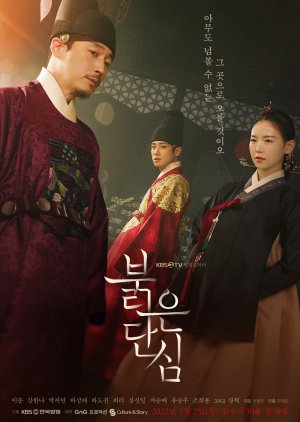


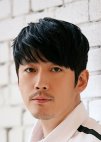

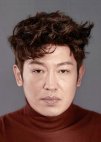
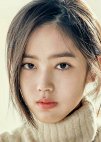
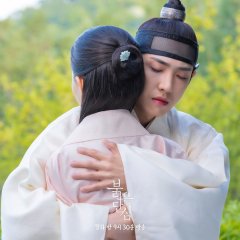
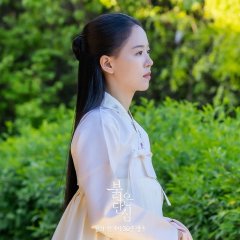
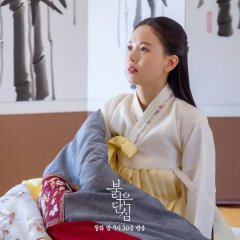
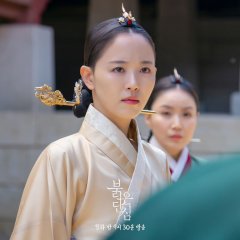
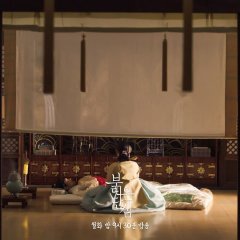
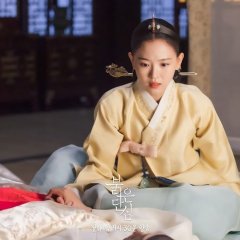
 2
2